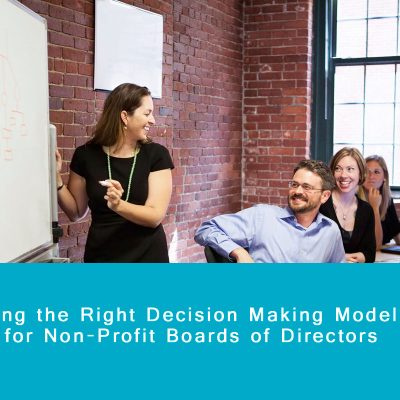
A consultant I am mentoring begins a recent session wanting help in sorting out a proposal she is working on. She received a Request for Proposal (RFP) and is having to make sense of what it is asking for. I have reviewed the RFP and her draft outline for her proposal. Our conversation begins. This is the discernment time that really good consultants go through to figure out
- what the potential client wants to accomplish
- why the potential client is engaging the services of a consultant at this time
- the scope of work for the consultant (consulting team)
The Discernment Process
Within the discernment process, we work together looking at the RFP. We identify inconsistencies and do our best as thought partners to clarity. Together we find, as is so often the case, the visible inconsistencies. Inconsistencies between what the client says they want to accomplish and what is laid out in the scope of work.
The consultant then looks at the draft of their proposal. Together we reflect that the writing was in direct response of each component part of the RFP. The writing didn’t take the whole RFP into account. Using the draft proposal as the basis for the final proposal writing is fraught with conditions for failure. Failure when everyone would rather the conditions for success. By outlining the consulting design based on the flawed scope of work, the consultant would be setting herself up for unnecessary and maybe insurmountable problems once the work commences. The discernment process again proves its value.
Choosing the Objectives OR the Scope of Work
The mentoring session continues with the consultant being faced with two choices. Does the proposal address the goals the RFP outlines? Or does it address the scope of work identified? It may seem that there is only one choice once the inconsistency is identified. This is not correct.
The goal of the consultant is to win the assignment. This is true for the independent consultant who needs the income. It is also true for the consultant who is internal to an organization and has her own needs for adhering to a scope of work just as it has been given.
The proposal that is most likely to win the award is one in which the inconsistency is not mentioned. The proposal that is most likely to win the assignment is a proposal that is compliant to the stated scope of work.
Aligning with the Scope of Work
One choice is to align the proposal to the stated scope of work. In taking the time to discern what is true in the proposal, there is greater awareness of the conversations needed at the beginning of the work. Conversations so that the scope of work can be redirected to align with the objectives the client wants to accomplish. Far better to be able to redirect early on rather than well into the work. Knowing what redirection is necessary from the outset creates conditions to better achieve the contract goals. The risk, of course, is if she is unsuccessful in redirecting the work once she has the contract. She is then needing to carry out her work in conditions that are not conducive to her success.
Answering the Objectives
The other choice is to use the proposal to provide information that the consultant deems helpful for the client to successfully accomplish the objectives, yet requiring an adjustment in the scope of work. The disadvantage of this approach is that it relies on the willingness of the client to think about what is being asked from a different perspective. And they must be open to this different perspective while evaluating the proposals and selecting the best consultant for the job.
If the client is not open to a different approach and is not willing to see the inconsistencies in their RFP, the proposal is not received favorably. The consultant doesn’t get awarded the assignment. The advantage of recommending an adjustment to the scope of work, and submitting a proposal based on that adjustment as though it is wanted, is that the conditions for success with the assignment once the work is underway, are vastly improved.
Making the Choice
In my mentoring session with the consultant, it is the consultant who makes the choice of which approach to take. It is my job to assist them in thinking through the risks and advantages. To guide and assist the consultant to go forward with their offer with confidence. Mentoring sessions for consultants prove their value, relying on skillfulness of an experienced and objective thought partner.
If you are wondering which of the two options you personally would go with, you won’t know until the moment of such a decision comes. Only then can you take into account the complexity you face in that moment. In my experience, the first approach…the one of writing a proposal directly aligned with the stated scope of work, wins more contracts. The work itself usually has more bumps and dissatisfaction for the consultant. The second approach of writing the proposal to an adjusted scope of work based on the consultant wisdom wins less contracts. However, the work for both the consultant and the client is significantly more fulfilling.
Mentoring for Success
Imagine the wealth that is generated via proposals when the Request for Proposals is right to start with. With the objectives to be accomplished and the scope of work in alignment at the time the request is submitted for bids from consultants. Leaders and managers then create conditions for success, for innovation, for fulfillment during the process as well as with the final product.
Our Dalar team mentors leaders and managers in developing your Request for Proposal with the right scope of work aligned with your intended objectives for success. We also mentor consultants to assist you in thinking through your proposal to best answer the RFP. The discernment we take you through in the mentoring has great value in considering the work from a holistic perspective to ensure robust development plans.
We love mentoring consultants in being their best with their work and in their lives.
We also love working with leaders and managers who are writing Requests for Proposals. Assisting them in getting the Request for Proposal right in relation to what they want to accomplish to support organizations in achieving their business and development goals.
If you have a project coming up and are interested in a conversation to best support you, contact us.











Leave a Reply
You must be logged in to post a comment.